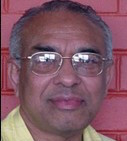Government’s Land Grab: The Bigger Picture

By Ameer Ali –April 20, 2017
President Sirisena’s gazette notification to declare lands occupied by the IDP Muslims in the Mannar District on the pretext of widening the perimeter of the Wilpattu National Park and protecting the environment should be viewed not simplistically as an anti-Muslim measure but more than that it should be considered in the overall context of policies embedded in the ruling neo-liberal economic paradigm. In this light the battle for revoking that notification should be fought not only by the victims of the President’s decision alone but by the general public.
Under the ruling paradigm, zealously advocated by its international patrons such as the IMF, World Bank and the U.S., and which champions the cause of free market, private enterprise, interests of capital and small government, economic resources should flow from the unproductive poor to the productive rich. This is how, according to these paragons of capitalism, the grand objective of higher economic growth could be promoted and its benefits could trickle down to the undeserving poor. As one of U.S’ anti-establishment economists John Kenneth Galbraith once wrote, “you feed the horse with oats so that something will drop from behind for the sparrows to eat”.
The poor have only two things to offer to the rich, labour and or land. Labour will be exploited by the market in the absence of minimum wage legislations and trade union power, but the land has to be acquired either through market forces or with the assistance of the state meaning forced evictioins. In many parts of the world including Sri Lanka the little piece of land on which the poor survive is the only asset they possess. In the urban areas these lands are part of the urban slums and in the rural area they are the hovels from which the poor multiply. To the rich and the powerful these are ugly scenes that spoil their surroundings and hinder capitalists’ productive enterprise. Hence, these ugly spots should be removed with the support of the state. This removal is one of the tasks assigned to the governments under neoliberal capitalism. One government that vigorously undertook to fulfil this task was the former government in Egypt under Hosni Mubarak. We all know what happened to his reign. Regretfully the situation there has not improved under the Sisi regime. The local bourgeoisie and their international power brokers successfully re-established the ancient regime.
What is happening now in Sri Lanka is the gradual unfolding of this policy by exploiting the current ethnic tensions in the country. Wilpattu attracts foreign tourists which brings in precious dollars to fill an already bankrupt government treasury. The larger the area of the park the greater will be its attraction to tourists and bigger will be the potential for profit making to tourist hotels and income to their service providers. Local capital will be in collusion with its foreign partners to maximise the opportunity. Obviously a government that has mortgaged its survival to the benevolence and conditionality of the IMF and its co-money-managers has no choice but to victimise the poor to the benefit of the rich. The country is sinking in foreign debt and the poor are squeezed through indirect taxes and dwindling public expenditure on education, health and other welfare enhancing projects. It is not the protection of the forest that is the main concern but maximising the dollar benefits of tourism. A government that cannot save its people from the dangers of mounting rubbish dumps is dying to save forests!
Because the lands that are now acquired affect only the minorities and not the majority community the ultra-Sinhala nationalists are urging the government to acquire even more lands from them. These chauvinists should realise that even lands occupied by the poor Sinhalese will be targeted one day when global capital and its domestic agents demand more resources to build their exploitative empires. A stich in time saves nine.

